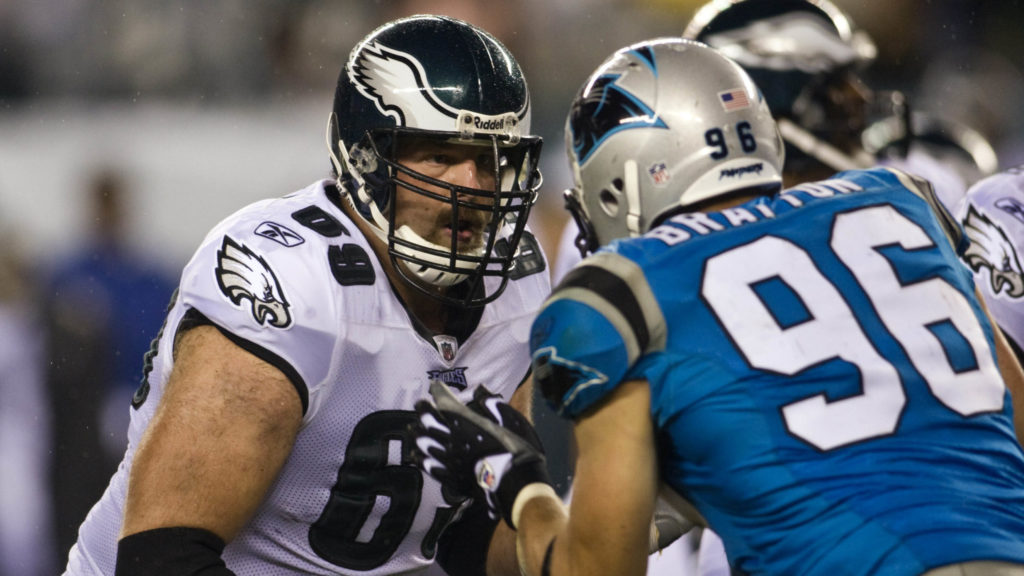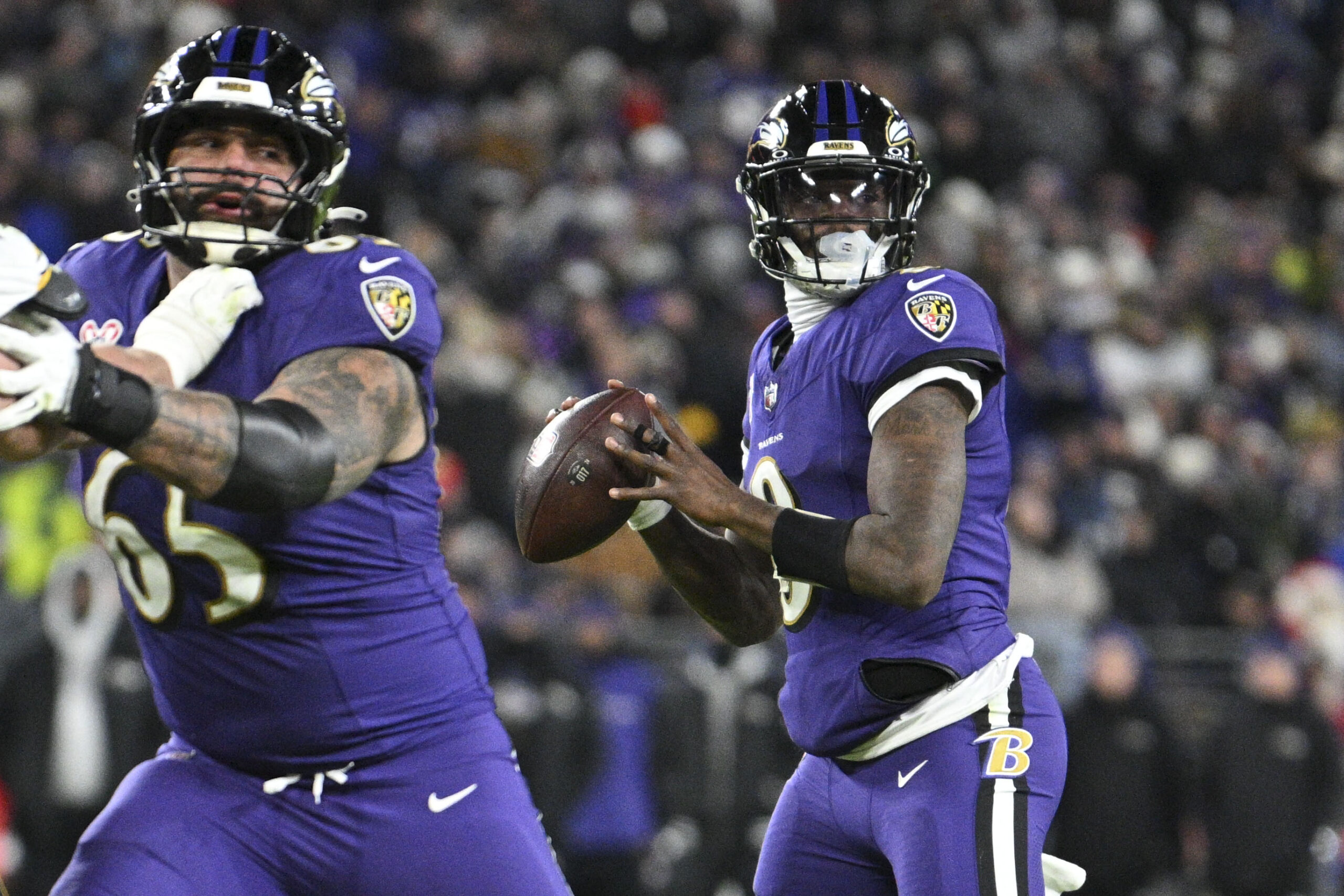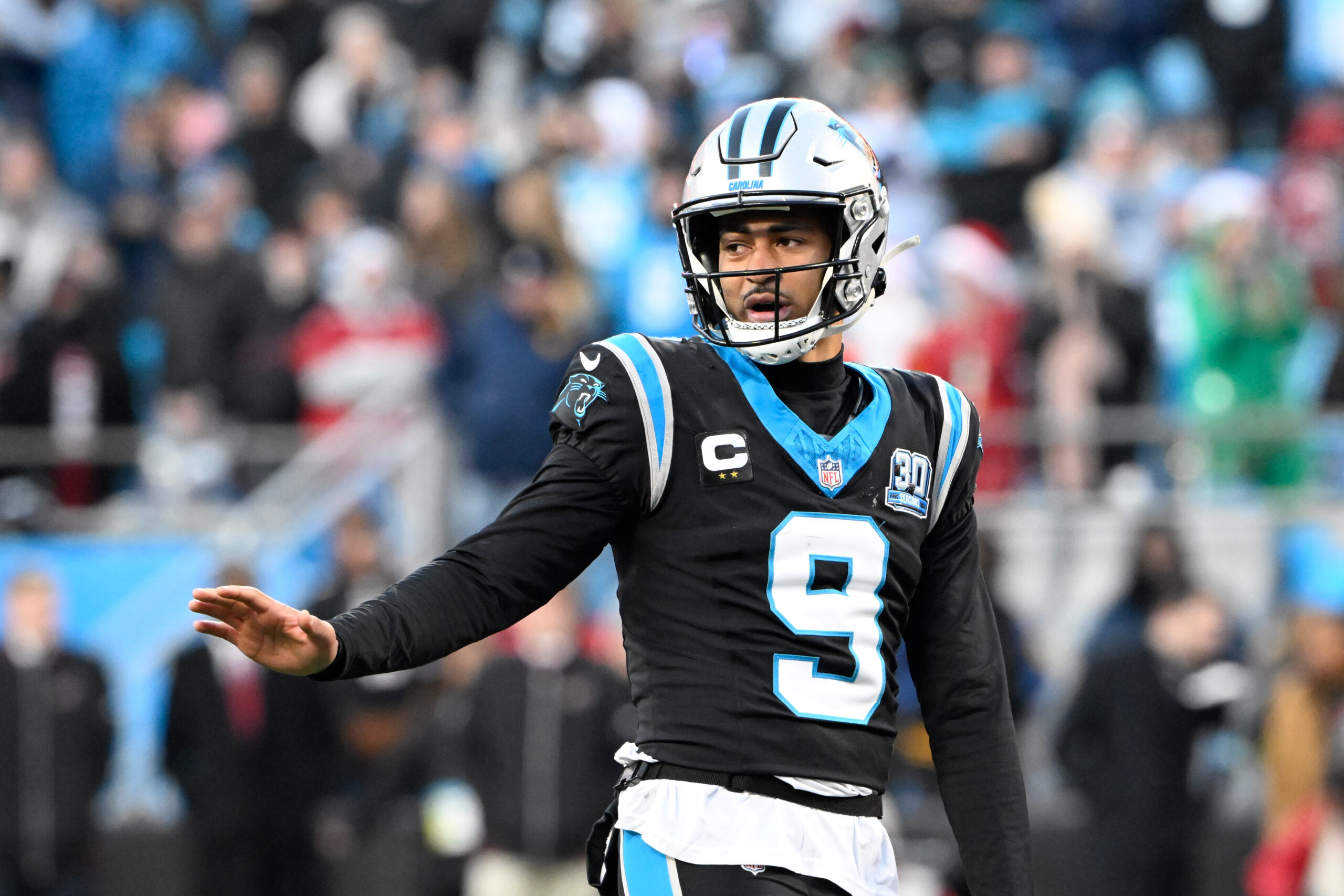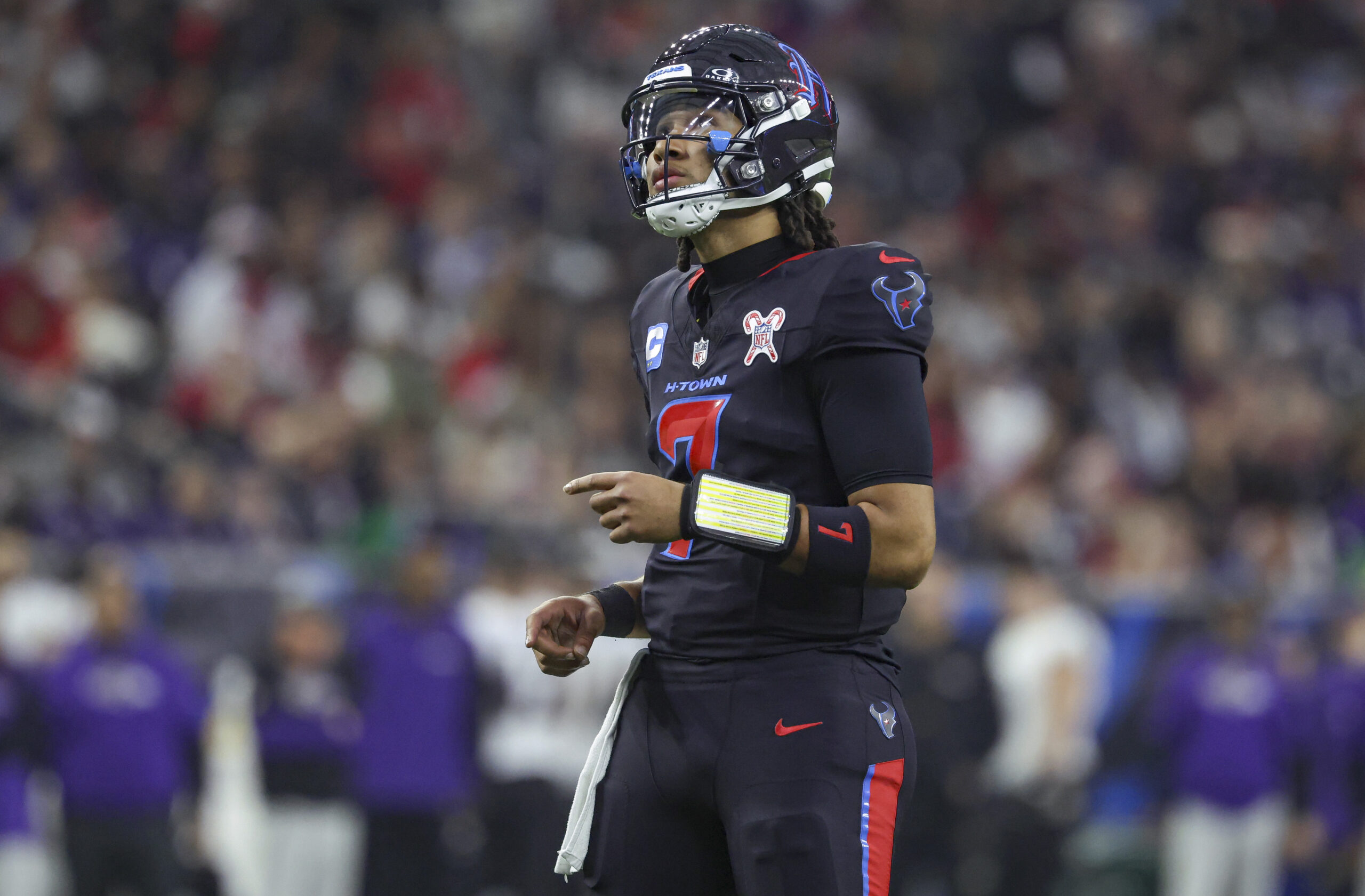NFL Analysis
9/1/22
10 min read
Jon Runyan: From Dirty Player to NFL's Duke of Discipline

Jon Runyan played football with a street fighter mentality. He did whatever it took to get the job done.
If it meant sticking his leg out and tripping a defensive end who got a step on him and was threatening to sack his quarterback, hey, you gotta do what you gotta do.
If it meant occasionally gouging someone in the eye with his thumb or punching somebody in the crotch at the bottom of a scrum, which he once famously did to Detroit Lions defensive tackle Jerry Ball, so be it.
“I remember a conversation I had with Andy Reid when I was with the Eagles,’’ said Runyan, a former Pro Bowl offensive tackle who played 14 years in the league. “He said, ‘Hey, every coach in this league wants to have 11 guys who play the game the way you do. But guys won’t do it. So, we’re not going to allow it.’’’
In one ear and out the other. You don’t get to be ranked the NFL’s second-dirtiest player [in a 2006 Sports Illustrated poll of his peers] by suddenly becoming an altar boy.
“I think I got that mentality from the [University of] Michigan program when I was in high school [in Flint],’’ he said. “The whole Bo Schembechler mentality. I’m going to beat you up, and you’re going to quit eventually."
“I was like that in basketball, too. Playing in the summer leagues in inner-city Flint, I was playing with guys that were 10 times better than me. But you know what? [If] you come into my lane, you’re not going to get an easy two points. I’m going to foul you, and we’ll see if you get up off the floor.’’
Duke of Discipline
Given Runyan’s down-and-dirty history as a player, there were more than a few raised eyebrows back in 2016 when the NFL hired him as its duke of on-field discipline—vice president of policy and rules administration. Fox, meet henhouse.
Hired by his friend and former Eagles teammate Troy Vincent, who is the NFL’s executive vice president of football operations, Runyan is entering his seventh season as the league’s chief compliance officer for all on-the-field misconduct. He determines what bad behavior rises to the level of a fine, and doles out financial justice each week.
He's also the league’s uniform and branding watchdog, making sure players adhere to the league’s uniform code.
“I’ve always said that if you want to burn a house down, who better to call to figure out the best way to do it than the fire marshal,’’ Runyan said. Actually, an arsonist might be a better analogy than a fire marshal.
“People who are more politically inclined have referenced Joe Kennedy, who was put in charge of the SEC (Securities & Exchange Commission) by FDR back in the 1930s because he had made a fortune fleecing the fricking system and knew where all of the loopholes were."
Runyan knows a little something about politics, having served two terms as a U.S. Congressman (he represented southern New Jersey) after retiring from football. He chose not to run for a third term because, well, two was more than enough.
Politics wasn’t for him.
“I always tell people, fundraising is half your life [in Congress],’’ he said. “Not half your job. Half your life."
“Two months ago, we had our legislative day at our D.C. office," Runyan added. "I hosted a round table with (Texas Rep.) Colin Allred and (Indiana Rep.) Anthony Gonzalez. Both of those guys played in the league. We had a candid conversation about how f***** up Washington D.C. is. While I was down there, I went on the House floor. A lot of my former colleagues said, ‘Oh my God, you definitely got out at the right time. It’s been just a sh**show since you left.’’’
Runyan has embraced his role with the league, which is as much about enhancing player safety as it is about fining players for bad behavior. He works with the league’s competition committee in the offseason helping craft rule changes to help make the game safer.
With his son, Jon Runyan Jr., entering his third year in the league—he’s an offensive lineman for the Green Bay Packers—Runyan Sr. has a personal stake in making sure the game is as safe as possible.
Safety vs. Entertainment
“In a perfect world, if they had everything they wanted, there would be no head-to-head contact whatsoever,’’ he said. “But that’s literally impossible when you have people running into each other. I mean, there’s head-to-head contact in basketball."
“When you’re in a full-contact sport with coaches, most of whom have multiple mindsets, it’s like, alright, where do we meet in the middle and make this game as safe as possible and protect the longterm quality of life for the players, but still have this entertaining gladiator sport, if you will?
“It’s a delicate balance," Runyan continued. "Because we’ve invested so much into the biomechanical analysis and the analysis of all of the injury data and that kind of stuff, you pretty much let the [injury] numbers take you there. Then no one can argue. You’re not just doing it on a guess. You’re letting the data drive it.’’
Runyan wasn’t a big fan of player safety-related rule changes when he played. Like a lot of players, he felt they were ruining the game. “It’s turned into a basketball game out there,’’ he once complained.
“No one ever is [happy with the changes] in the moment,’’ Runyan said last week in a 90-minute interview with The 33rd Team. “But when you’re sitting around with former teammates after you leave the game, you see things differently.
“I was talking to one the other day. I won’t tell you who it was, but he isn’t right. It has f***** up his whole life. It’s someone I respect and was around a lot. But he won’t talk to a lot of people anymore because he knows he’s messed up. It’s scary.’’
More Than 700 Fines Handed Out
Runyan said the league handed out more than 700 fines last year for on-field infractions such as late hits, initiating contact with the helmet, grabbing the facemask, illegal blocks, hits on a defenseless player, roughing the passer, low blocks, et al. Most, but not all, drew penalties. Runyan can fine a player even if a flag isn’t thrown.
The league tweaked the use-of-helmet rule this year, changing the wording from making it illegal to lower your head and initiate contact to lowering your head and making “forcible contact.’’
“Initiating contact was subjective,’’ Runyan said. “Forcible contact is subjective too, but a little less so.’’
Runyan often is more understanding than the zebras.
“There was one last week that stood out,’’ he said. “It was a [running back] in the flat. The guy fell down. He half-assed got up but still hadn’t been touched. One of the defensive linemen went out there and jacked him. He didn’t put a shoulder into him. He just pushed him. But they threw a flag. I’m like, the guy wasn’t down. You’re assuming he’s declaring himself down, but no one blew the whistle. It wasn’t a foul."
“Even some of the hits on the sideline [that draw flags]. Some guys, they start loafing when they hit the sideline. Get out of bounds if you don’t want to get hit. Stop trying to grab that extra yard. Put a foot out of bounds. Because you’re not out of bounds until you touch.’’
Appeal Process
Players, typically, don’t agree with Runyan’s decision to fine them. Last year, 97 percent of the 700-plus fines he handed out were appealed. Two former players, James Thrash and Hall of Fame linebacker Derrick Brooks, who were jointly appointed by the league and the Players Association, are the league’s appeals officers. The appeal hearings are done by conference call, usually within 10 days of the appeal.
According to the league’s collective bargaining agreement, if a foul actually occurred on the play, a fine can be reduced by no more than 20 percent. Very few of Runyan’s fine decisions have been rescinded in the six years he’s been doing it.
Runyan spends his Sundays during the season at the NFL office in Manhattan, watching the games with Vincent at one of the league’s three command centers. They tag both bad plays and good ones.
The good ones are used as part of the league’s "Way To Play" initiative, which promotes proper blocking and tackling techniques across all levels of football.
On Mondays, Runyan and former NFL defensive lineman Steve Bowen go through all of the Sunday games again and tag the potentially fineable plays, including ones that might not have drawn a penalty.
“Using the helmet gets missed a lot,’’ Runyan said. “It’s really hard to officiate because you see a lowered head. But a lot of times, both guys are lowering their heads. When you’re able to slow it down frame by frame, it’s easier to figure out [who’s at fault].’’
Runyan spends Tuesdays dealing with uniform and branding appeals. Then, on Tuesday night, after he finally gets finished with those, he’ll put together his list of potentially fineable plays and clean it up.
Discipline Decisions
On Wednesday, he’ll meet with Bowen, Akil Coad, the VP of football operations and compliance, and Perry Fewell, the Senior VP of officiating, communications and administration, and they’ll go through Runyan’s list.
“I’ll have my spreadsheet open,’’ he said. “I’m like, ‘I’ve got a yes [it’s a fineable offense] here. I’ve got a no here. I’ve got a warning here. I’ve got a question mark here because I’m not even sure it was a foul. What do you guys think?’’’
Once they firm up the list of plays that rise to the level of discipline, Runyan cuts up the video of those plays, which will be attached to the fine notification email.
“We’re talking views from both end zones, the sideline, the network feed and the network replay,’’ he said. “You have to clip all of those replays [to the email]. Last week, we had something like 40 pieces of discipline go out. So, I had almost 170 video clips that I had to cut up and attach. Then we write the [fine] letters."
The letters are emailed to the players on Friday morning. Selected members of the player’s organization also receive a copy of the letter.
“Every club has their own pecking order of who gets to see it [besides the player],’’ Runyan said. “Some clubs, it’s just the head of football operations and the head coach. Other clubs, it’s the owner, the president, the VP of personnel. Everybody’s different. One of the thing we do in late June or early July is check with teams to see who they want notified on fines.’’








